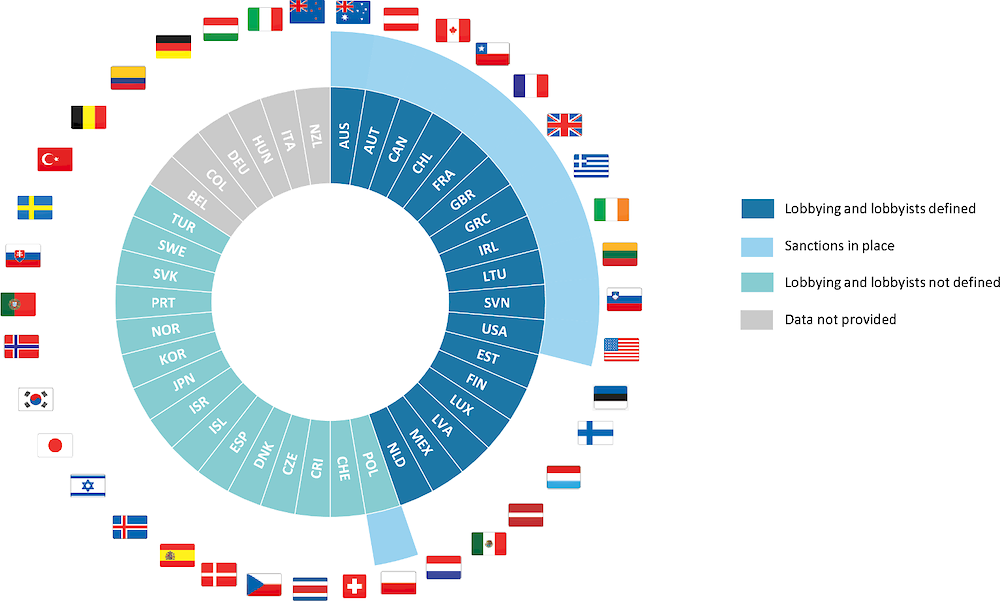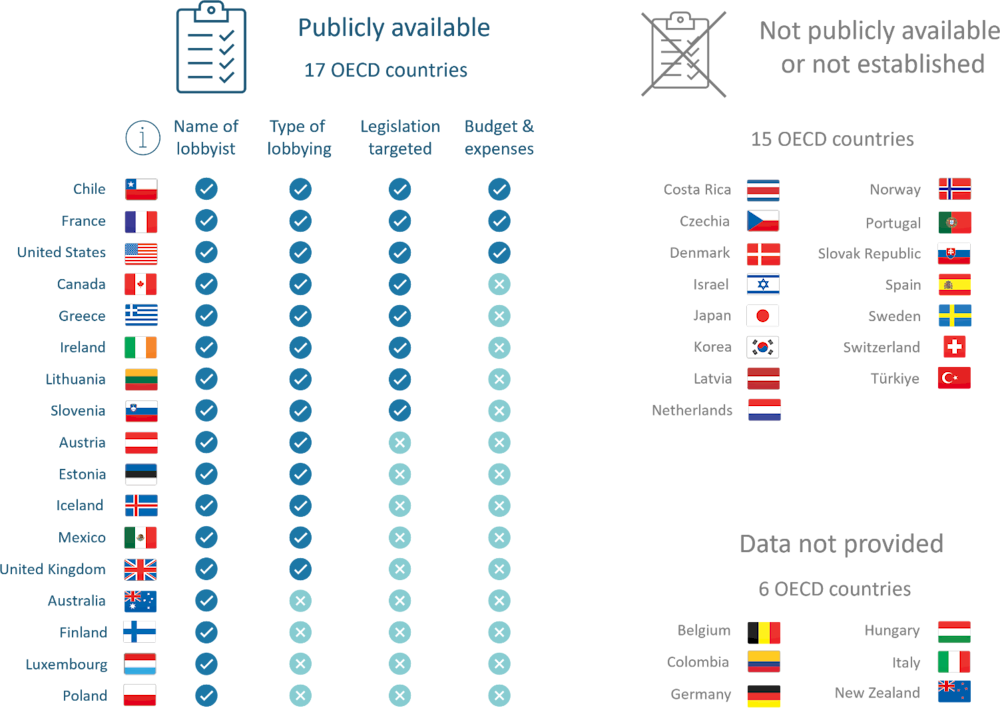Lobbying is a natural part of the democratic process, but it needs to be managed properly to ensure influence is brought to bear fairly and effectively on policymaking. By sharing expertise, legitimate needs and evidence with policymakers, different interest groups can provide governments with insights and data on which to base policy and decision making. However, if the proper safeguards are not put in place, lobbying can create advantages for certain groups that lead to asymmetric or undue influence over policymaking, in turn leading to policies that are inefficient, ineffective or do not serve the public interest.
Lobbying is an increasingly complex activity, and the risks it poses are changing. The actors involved in lobbying and the context in which they operate are also evolving. Those seeking to influence policymaking now include trade and industry associations, NGOs, advisory and expert groups, parliamentary liaison groups, academic institutions, and think-tanks (OECD, 2010[18]; OECD, 2021[19]; Benamouzig and Cortinas Muñoz, 2019[20]; Mialon, Swinburn and Sacks, 2015[21]). The methods being used to lobby policymakers and the pressures they create are also changing. Through social media and direct messaging, policymakers are subject to increased scrutiny, political polarisation and misinformation, making it harder to determine legitimate representation and make informed decisions that lead to policies in the public interest (OECD, 2021[19]). Changing public perceptions of whose interest policy is being made in and who should be involved in policymaking are leading to calls for stricter rules around lobbying and even the exclusion of certain interests from debates on certain issues (OECD, 2021[19]; OECD, 2022[6]).
These developments are particularly significant as engagement between OECD governments and external organisations intensifies around issues related to the green transition. AI is presenting new opportunities for those outside of government to influence decision making legitimately through more efficient policy analysis and more targeted influencing activity or illegitimately through, for example, deepfake content. And foreign interference is increasing the risks of not properly defining who has a legitimate interest in the policymaking process.
Lobbying is one of the most underregulated areas of public integrity across the OECD. This chapter finds that:
The basic elements of a lobbying framework are in place in around half of OECD countries.
Low levels of transparency around lobbying are increasing the risk that policymaking can be unduly influenced.

